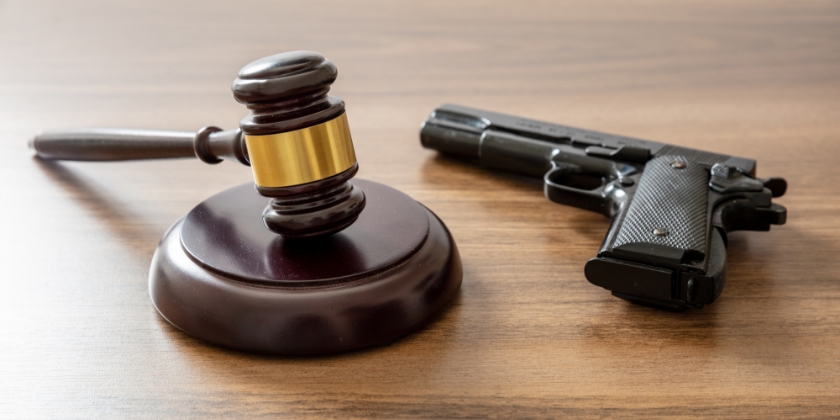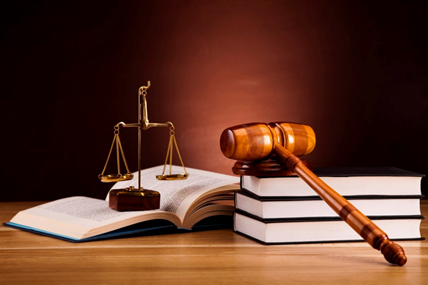Navigating the complexities of gun crime charges requires specialized knowledge and legal expertise. As gun crime lawyers, we provide comprehensive legal representation focused on defending the rights of individuals facing firearm-related charges. Our commitment is to ensure that each case is meticulously examined, bringing a rigorous approach to the criminal defense process.
The legal landscape surrounding gun crimes is intricate, making it essential for those charged to have a dedicated legal team. We address the nuances of firearm legislation and pursue strategies that best serve our clients’ needs. Our experience allows us to tackle the diverse challenges inherent in these cases with precision and dedication, ensuring our clients have the strongest defense.
Clients facing gun crime charges often encounter a daunting judicial system. Our role is to clarify each step, demystifying the process and ensuring our clients are informed and confident throughout their journey. By prioritizing clear communication and strong advocacy, we aim to provide unparalleled support and guidance in navigating their legal challenges. learn more about skilled gun crime lawyer
Understanding Gun Crime Legislation
Gun crime legislation in the US is shaped by a complex blend of state-specific laws, federal regulations, and constitutional rights. Navigating these laws requires a clear grasp of varying state requirements, federal guidelines, the Second Amendment, and the necessary permits for gun ownership.
State-Specific Gun Laws
State-specific gun laws vary widely across the US. Each state has its regulations determining who can own a firearm, the types of firearms allowed, and where firearms can be carried. Some states require comprehensive background checks and waiting periods. For example, California mandates a 10-day waiting period for all firearm transfers, whereas in Texas, no waiting period is enforced. The variety means individuals must carefully examine their state’s specific laws to ensure compliance.
States also differ in terms of concealed carry permits and restrictions on high-capacity magazines or assault weapons. Understanding these laws is vital for gun owners, as crossing state lines can lead to inadvertent legal violations without adherence to the respective laws.
Federal Firearms Regulations
Federal firearms regulations oversee broad aspects of gun sales and ownership in the US. The Bureau of Alcohol, Tobacco, Firearms, and Explosives (ATF) is the federal agency in charge of enforcing these regulations. One main element is the National Firearms Act, which imposes taxes and mandates registration for certain types of firearms like silencers and short-barreled rifles.
Another significant regulation is the Gun Control Act of 1968, which set the framework for firearm dealer licenses and established a federal age restriction for firearm purchases. By establishing minimum requirements for all states, federal laws create a baseline for safe and lawful gun ownership.
The Second Amendment and Right to Bear Arms
The Second Amendment of the US Constitution is fundamental to American gun legislation. It states: “A well-regulated Militia, being necessary to the security of a free State, the right of the people to keep and bear Arms, shall not be infringed.” The interpretation of this amendment continues to be a topic of legal debate and court cases.
Our understanding of the Second Amendment shapes both advocacy and opposition to various gun control measures, highlighting the tension between individual rights and public safety. This balance of rights and responsibilities is central to legislative discussions around firearms in the United States.
Permits and Licenses for Gun Ownership
Permits and licenses for gun ownership differ significantly between states. While some states, like Illinois, require residents to have a Firearm Owner’s Identification (FOID) card, others may not require a license to purchase or own a gun. Concealed carry permits are another layer of regulation, dictating where and how one can legally carry a firearm.
The permitting process usually includes background checks, fee payments, and sometimes even firearms safety courses. Understanding these requirements is essential for anyone wishing to legally own or carry a gun, ensuring that all necessary legal criteria are met.
Legal Assistance for Gun Crime Charges
Gun crime charges can lead to severe penalties, and navigating the legal process requires specialized knowledge. Our focus on defense strategies and the significant role of a gun crime lawyer is crucial for anyone facing such challenging situations.
Criminal Charges and Consequences
Gun-related charges come with serious legal implications. Criminal charges can vary, potentially including unlicensed possession, illegal discharge, or use in a crime. Each carries distinct penalties, from fines to substantial incarceration periods. The consequences impact one’s life significantly, affecting not just current circumstances but future opportunities as well. During a trial, understanding potential penalties and legal repercussions is vital. Our clients often have numerous questions, and it’s essential to provide answers that clarify their specific legal situation.
Defense Strategies in Gun Crime Cases
Crafting a robust defense is paramount in gun crime cases. Various strategies might include disputing evidence, questioning the validity of an arrest or search, or negotiating for a plea deal. Criminal defense focuses on highlighting weaknesses in the prosecution’s case. We evaluate every detail, including police investigation processes, to ensure a viable defense is in place. Each case requires a tailored approach, balancing aggressive representation with strategic decision-making to reduce the risk of conviction or achieve dismissal.
The Role of a Gun Crime Lawyer
A gun crime lawyer plays a crucial role in navigating these legal waters. They provide representation and guidance from the moment of an arrest through to potential trial. Our role involves understanding the nuances of gun-related laws and applying them effectively to each unique situation. As criminal defense lawyers, we advocate for our clients’ rights, striving to mitigate charges and, when possible, avoid conviction. Their expertise in negotiations with the prosecution and familiarization with court procedures is an invaluable asset throughout the process.






